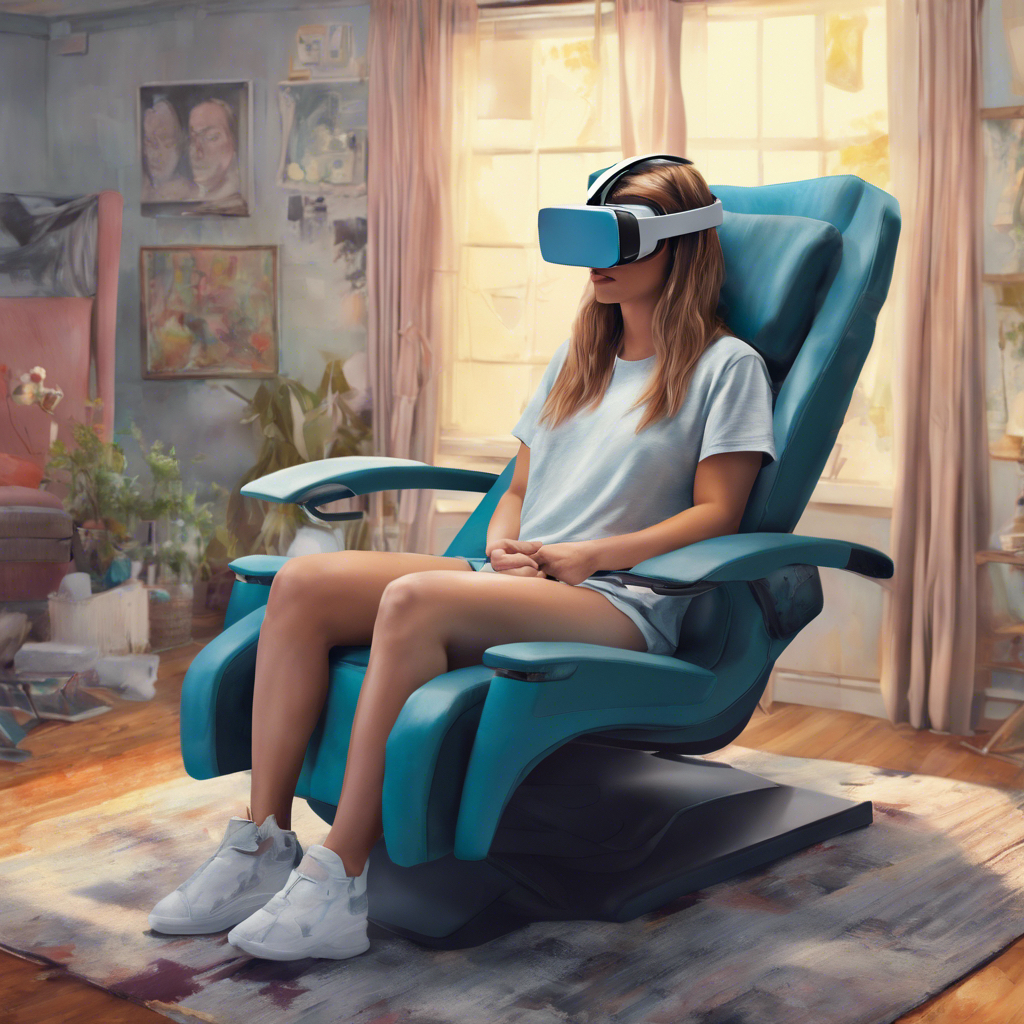Enhancing Mood with Virtual Realities: Innovative Treatments for Depression
The Emergence of VR in Mental Health Virtual reality (VR) technology has evolved significantly, becoming more than just a tool for gaming and...
2 min read
 Nerdle
:
May 16, 2024 10:44:31 AM
Nerdle
:
May 16, 2024 10:44:31 AM

In recent years, virtual reality (VR) has transcended the boundaries of entertainment, asserting itself as a transformative tool in the field of mental health. At VRenity.com, we've seen firsthand how immersion therapy harnesses VR technology to provide profound therapeutic benefits. This blog post explores why immersion therapy, especially when mediated through VR, stands out as one of the most effective treatments for mental health issues.
Immersion therapy in the context of VR involves using virtual environments to engage individuals in experiences that promote psychological healing and well-being. Unlike traditional therapeutic settings, VR immersion therapy can create controlled, immersive scenarios tailored to address specific mental health conditions, such as anxiety disorders, PTSD, and phobias.
One of the primary advantages of VR-based immersion therapy is the level of control it offers both therapists and patients. In a virtual environment, therapists can instantly adjust settings to suit the patient's needs without exposing them to real-world risks. This safe, controlled setting helps patients confront their fears or relive traumatic memories at a pace they can handle, which is often not possible in the unpredictability of real life.
VR technology has reached a point where simulations can be incredibly lifelike and convincing. This realism plays a crucial role in the effectiveness of immersion therapy, allowing individuals to fully engage with their therapeutic process. For instance, a patient with a fear of flying can experience the various aspects of air travel without ever leaving the ground, providing a realistic yet completely safe environment for therapy.
VR systems can provide immediate feedback to therapists, who can then adapt the therapy session in real time based on the patient's responses. This dynamic adjustability is not typically feasible in conventional therapy settings but is crucial for tailoring the session to the individual's immediate emotional and psychological needs.
Immersion therapy via VR also breaks down geographical and physical barriers to effective mental health treatment. Patients who might not have access to specialized therapists in their area can benefit from remote sessions, ensuring that they receive the best possible care without the constraints of location.
Research into VR-based immersion therapy shows promising results. Studies have demonstrated its effectiveness in reducing symptoms of PTSD, anxiety, and depression. The immersive nature of VR allows for a deeper emotional and cognitive processing that traditional therapies might not always facilitate.
Conclusion
As VR technology continues to evolve, its application in mental health settings offers exciting possibilities. Immersion therapy through VR is not just about novelty; it's about providing a deeply engaging, profoundly effective tool for psychological healing. At VRenity.com, we remain committed to exploring and promoting the most innovative therapies that empower individuals to lead happier, healthier lives.
Interested in learning more about VR and its therapeutic applications? Stay tuned to VRenity.com for the latest insights and breakthroughs in virtual reality technology and mental health treatment.

The Emergence of VR in Mental Health Virtual reality (VR) technology has evolved significantly, becoming more than just a tool for gaming and...

Welcome to VRenity.com, where we explore the cutting-edge of virtual reality technology and its transformative impacts on therapy. Today, we delve...

Introduction: In recent years, Virtual Reality (VR) technology has made remarkable strides, transcending the boundaries of entertainment to emerge as...